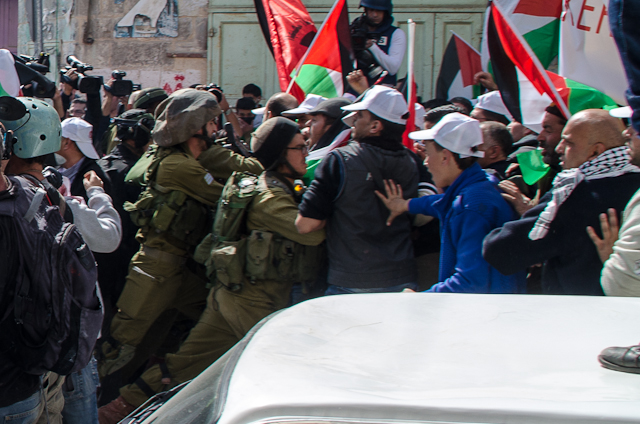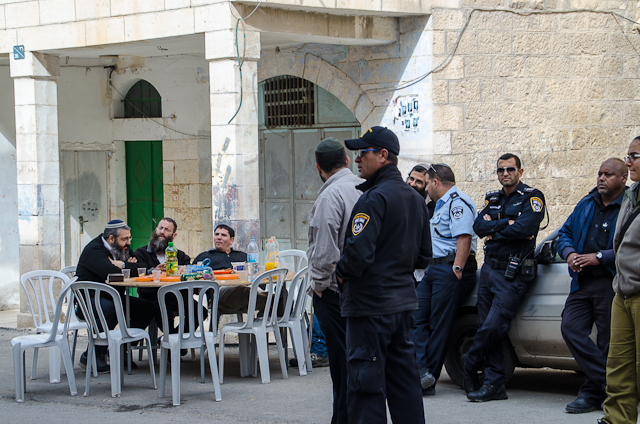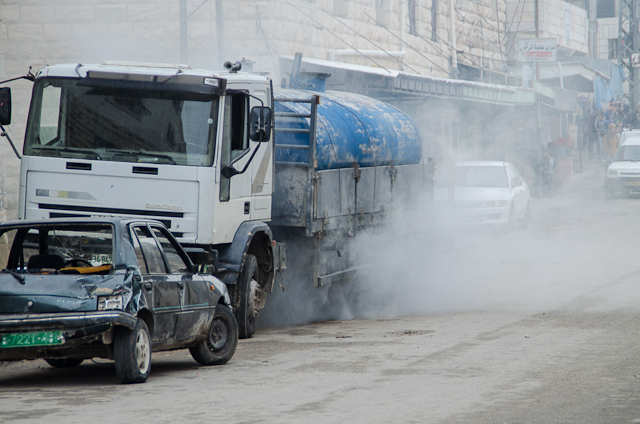Tag: Hebron
-
Fifth annual Open Shuhada Street demonstration in Hebron
21st February 2014 | International Solidarity Movement, Hebron Team | Hebron, Occupied Palestine The fifth annual “Open Shuhada Street” campaign took place on Friday the 21st of February in Hebron. Five people were arrested and 13 treated after being shot by rubber-coated steel bullets during a peaceful demonstration to open Shuhada Street for Palestinians. On the 21st of…
-
Israeli settlers prevent shop renovation in Hebron
23rd February 2014 | International Solidarity Movement, Hebron Team | Hebron, Occupied Palestine On Sunday the 23th of February at around 9:30 a.m. more than ten settlers forced a Palestinian shop owner to stop renovating his shop. The settlers did this by sitting at tables and chairs they had brought from the nearby Gutnick Center in Hebron, an…
-
Israeli forces use tear gas against schoolchildren in Hebron
16th February 2014 | International Solidarity Movement, Hebron Team | Hebron, Occupied Palestine On Sunday, the 16th of February, Israeli soldiers and border police in Hebron fired tear gas and sound grenades at children on their way to school. The border police also chased the children, attempting to arrest them. At Checkpoint 29, around 7:30 a.m.,…



